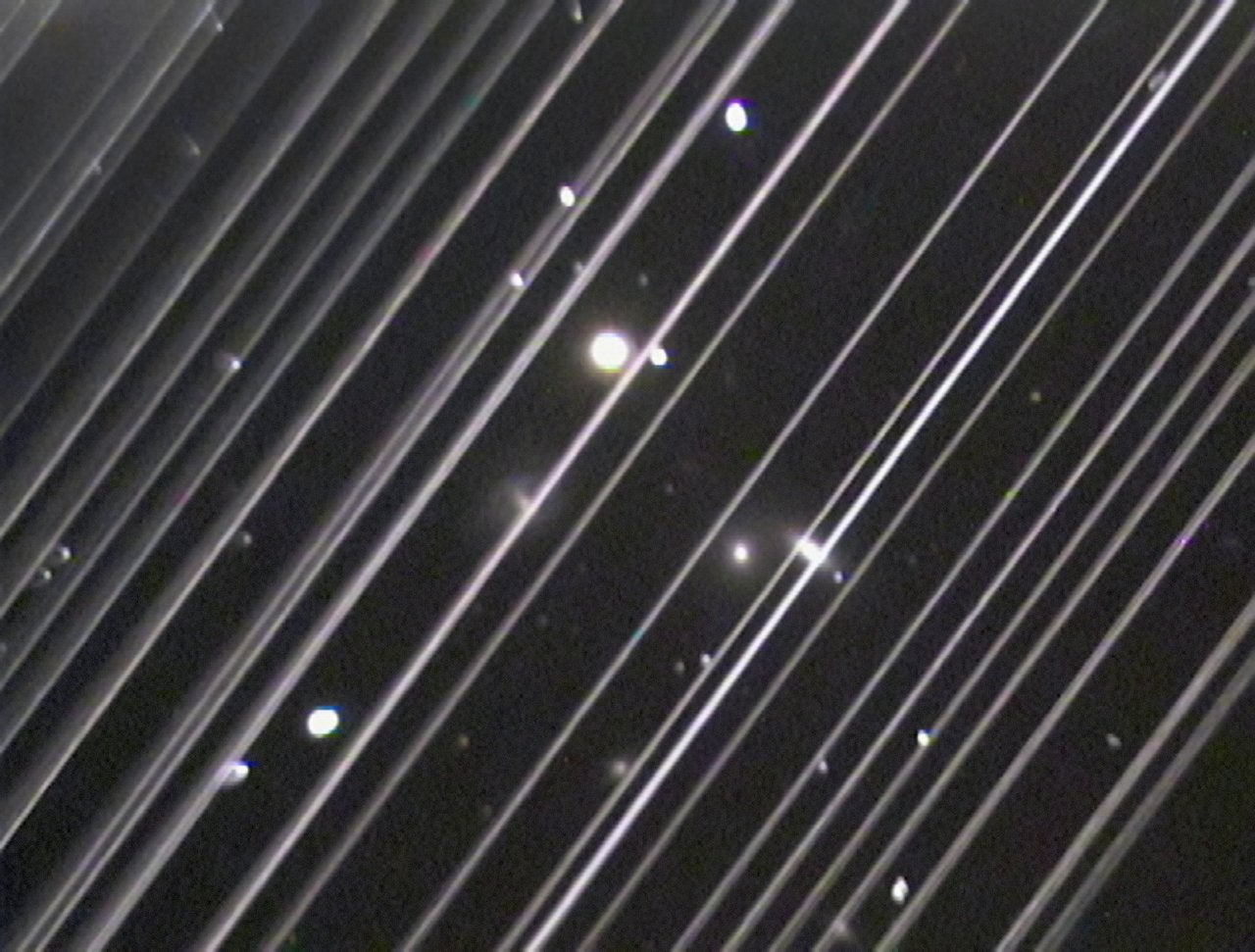Satellites are clogging up the night sky much more than we thought, astronomers say

Satellites may be causing much more of a problem for astronomers than previously thought, according to new research.
The new findings suggest that the artificial objects in the night sky are making it brighter than we had realised, lifting the amount of light by more than 10 per cent.
That would mean that the night sky has gone past a threshold established 40 years ago to determine whether a certain location can be considered polluted by light.
In recent years, astronomers have become increasingly concerned by the vast and growing number of artificial objects in the night sky. Of particular worry are “megaconstellations” – vast trails of satellites such as those required for SpaceX’s Starlink satellite internet.
Companies including SpaceX have been looking at ways at darkening those satellites so that they cause less of a problem for astronomers and anyone else looking out at the night sky. But the rapidly growing number of such satellites mean that the damage could continue.
Read more:
- SpaceX Starship SN11 launch - follow live
- Scientists reveal new image of first ever black hole to be pictured
- Nasa announces details of first ever controlled flight on another planet
- Next bitcoin crash will wipe 90% from price and cause ‘crypto winter’, expert warns
- Theory claims to finally reveal how the dinosaurs were killed
Unlike more traditional light pollution from sources on the ground, satellites can cause more of a problem for astronomers. Observatories are typically built away from more built-up areas to avoid any light polluting their work, but they are unable to escape more general pollution across the sky.
In the study, researchers looked at satellites that are still working, as well as non-functional debris such as pieces of used-up rockets.
While those pieces can look like individual objects to highly developed equipment such as telescopes and specialised cameras, to humans they only create a more general sense that the night sky is brighter. That could get in the way of seeing important sights such as the glow of the Milky Way.
The authors of the new research, due to be published in Monthly Notices of the Royal Astronomical Society: Letters, said that they had been shocked by how much the brightness had increased.
“Our primary motivation was to estimate the potential contribution to night sky brightness from external sources, such as space objects in Earth’s orbit,” said Miroslav Kocifaj of the Slovak Academy of Sciences and Comenius University in Slovakia, who led the study.
“We expected the sky brightness increase would be marginal, if any, but our first theoretical estimates have proved extremely surprising and thus encouraged us to report our results promptly.”
The researchers also warn that the satellites could pose another danger: the higher chance of collision as more objects are floating in space.
They said that the growing light pollution and its effect on the population more broadly could trigger a conversation about how to protect the view of the sky.
“Our results imply that many more people than just astronomers stand to lose access to pristine night skies,” said John Barentine, Director of Public Policy for the International Dark-Sky Association and a study co-author. “This paper may really change the nature of that conversation.”
Subscribe to Independent Premium to bookmark this article
Want to bookmark your favourite articles and stories to read or reference later? Start your Independent Premium subscription today.

Join our commenting forum
Join thought-provoking conversations, follow other Independent readers and see their replies